Cambodia's foreign policy under new Prime Minister Hun Manet
Hun Manet, son of Hun Sen, has been named Cambodia's new prime minister in August. While Cambodia has maintained a close relationship with China during Hun Sen's rule, how will its new leader negotiate the nation's foreign relations amid great power rivalry? Cambodian commentator Rim Sokvy says even if the new leadership wants to align more with the West, and improve the transparency and accountability of the nation's bureaucratic system, the current state of domestic politics could hold it back from doing so.
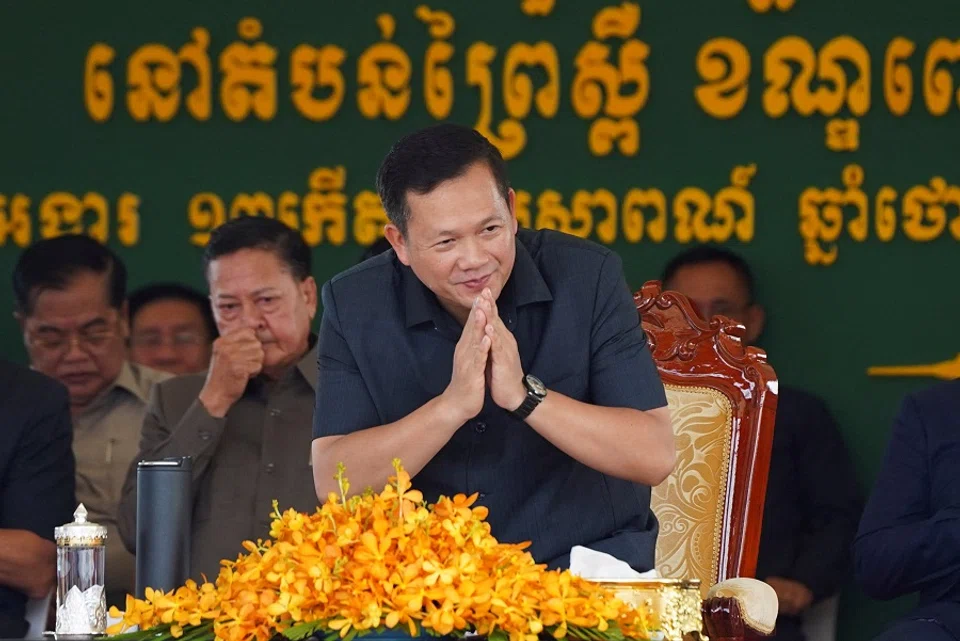
On 7 August, the king named Hun Manet the new prime minister of Cambodia.
When Hun Manet's father, Hun Sen, was prime minister, Cambodia's relations with China grew from strength to strength. China has supported Cambodia financially and militarily since the start of the armed conflict in 1997, and continued to do so throughout the 2000s as the Cambodian People's Party (CPP) worked to cement its political base.
China-Cambodia relations further solidified on a personal level, with senior officials and leaders on both sides enjoying good relations. Hun Sen even publicly said in 2022: "If I don't rely on China, who will I rely on?"
To be fair, Cambodia under Hun Sen had also put a lot of effort into improving relations with the US and Western countries. However, efforts were not successful because there seemed to be deep mistrust between Cambodia and the US. Against that backdrop, analysts have been speculating as to whether Cambodia's relations with major powers will change with Hun Manet taking the helm.
Who is Hun Manet?
Hun Manet was previously a lieutenant general and deputy commander-in-chief of the Royal Cambodian Armed Forces and commander of the Royal Cambodian Army. Months before he became the prime minister, he was also promoted to a four-star general. In his time as lieutenant general, he maintained a balanced engagement with both China and the US despite Cambodia having bad relations with the US and good relations with China.
Hun Manet's participation was surprising given that the kingdom had suspended its annual military drill, known as Angkor Sentinel, with the US in 2017.
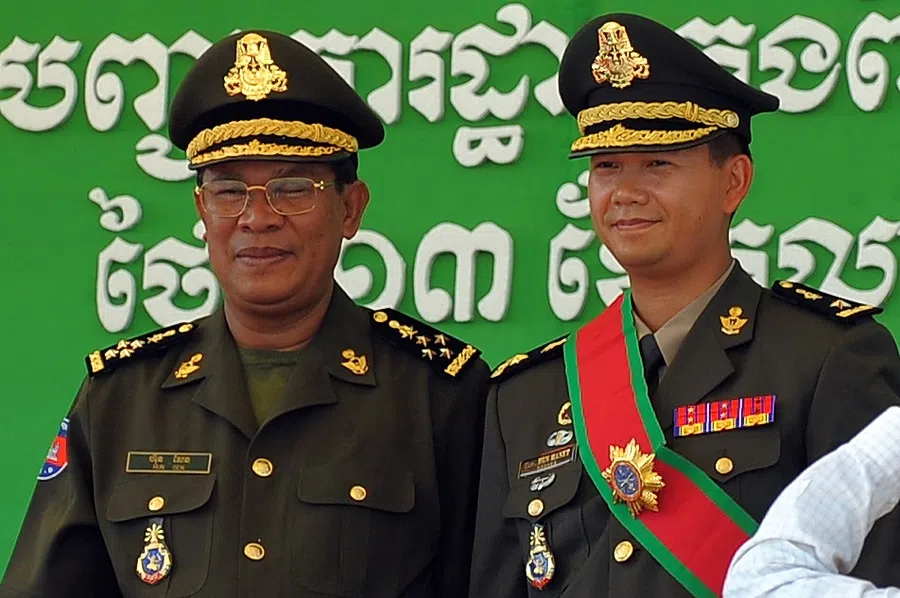
On 9 April 2019, Hun Manet participated in the US's Pacific Area Special Operations Conference. Hun Manet's participation was surprising given that the kingdom had suspended its annual military drill, known as Angkor Sentinel, with the US in 2017. Hun Manet himself was very much involved with the Angkor Sentinel before its suspension.
A few months after Hun Manet's visit to the US, then Minister of National Defence Tea Banh had a meeting with the US ambassador in Cambodia, discussing ways of improving military-to-military cooperation, particularly in terms of military training and exercise.
In the same year, opposition figure Sam Rainsy, suggested that the degree that Hun Manet received at West Point was "second class" as he was non-American. The US embassy in Cambodia defended Hun Manet at the time, stating that the academy does not award second class or honorary degrees.
In comparison, Hun Manet's engagement with China was more symbolic and traditional. During his first visit to China in February 2019, he met with China's Defence Minister Wei Fenghe. While China's readout praised Hun Manet's visit as strengthening bilateral relations, such wording was nowhere to be found in Cambodia's readout.
In 2020, Hun Manet accompanied his father to China. A year later, Hun Sen declared his support for Hun Manet as a candidate for Cambodia's next prime minister. As a close ally of China, it might have been expected that China would have shown gestures of support for Hun Manet, touted to be a prime ministerial candidate. Nonetheless, there were none of such gestures, including during Hun Manet's meeting with Xi Jinping in 2020 and 2023, and Wang Yi in 2022.
Wang Yi also did not meet with other powerful young guards such as Defence Minister Tea Seiha, the son of former Minister of Defence Tea Banh, or Interior Minister Sar Sokha, the son of former Minister of Interior Sar Kheng.
China's diplomatic outreach
On 12-13 August, Chinese Foreign Minister Wang Yi visited Cambodia and two other ASEAN countries with the aim of improving "strategic communication". The visit to Cambodia appears to have done little to secure the support of the new guard.
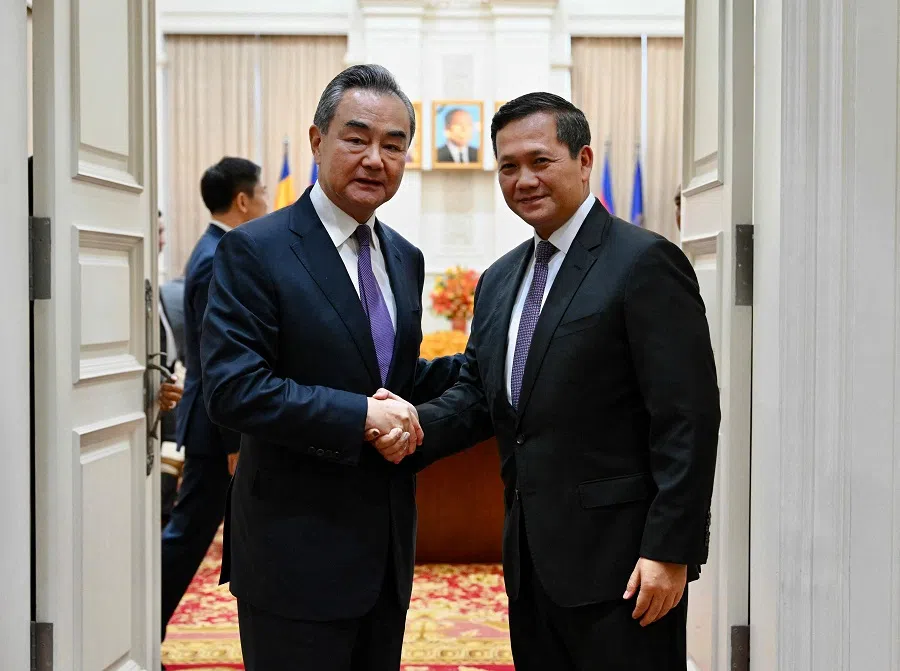
Wang Yi met with Hun Sen and Hun Manet, who had by then been elected by parliament as the prime minister. VOA reported that Hun Manet showed signs of an "unchanged" policy towards China, and that he would continue to maintain Cambodia's stance on China regarding its "one China" policy and "non-interference policy". Hun Manet also agreed to participate in the upcoming Belt and Road Initiative (BRI) forum in Beijing in October. Nevertheless, the outcomes were rather conservative given the fact that this overall approach has been the stance of the CPP-led government towards China since 1997.
Wang Yi also did not meet with other powerful young guards such as Defence Minister Tea Seiha, the son of former Minister of Defence Tea Banh, or Interior Minister Sar Sokha, the son of former Minister of Interior Sar Kheng. They play a critical role in Cambodia's domestic politics but probably because of their previous roles as the former governor of Siem Reap province and the former secretary of state at the Ministry of Education, Youth and Sport, respectively, they have had limited engagement with China.
That said, the visit seemed to be more of a farewell to the old guards, particularly Hun Sen, Prak Sokkonn, and Hor Namhong, who had played a critical role in Cambodia's China relations. Wang Yi thanked them for contributing to Cambodia-China relations.
Around 30 people have been appointed as ministers attached to the prime minister. However, many of them do not have close relations with China.
Cabinet ministers with new preferences?
Notably, the new cabinet members consist of people who tend to favour the US and Western countries rather than China. Around 30 people have been appointed as ministers attached to the prime minister. However, many of them do not have close relations with China.
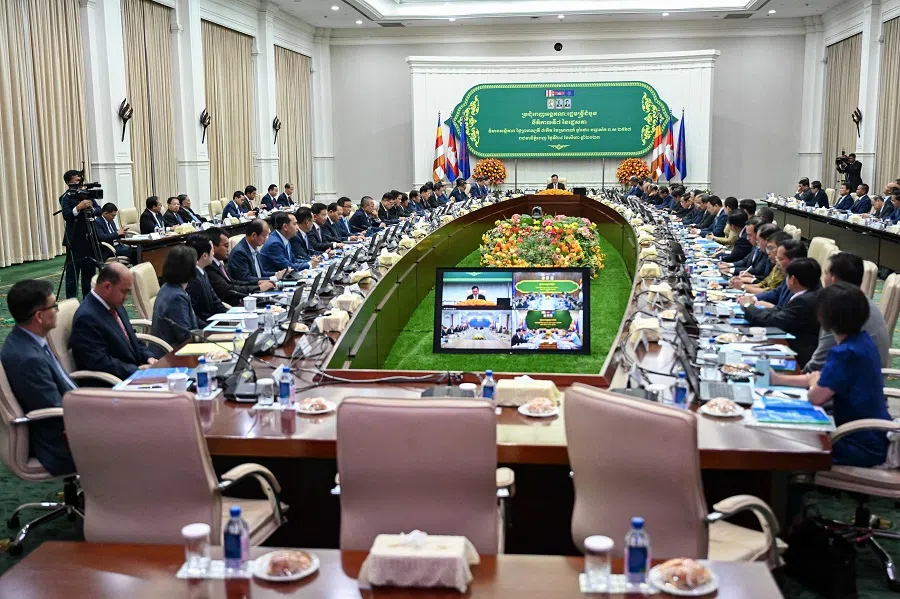
Srey Thamarong has been assigned to advise Hun Manet on foreign affairs. This is surprising given the fact that most of his time working as minister attached to former Prime Minister Hun Sen, he accompanied and gave advice on the prime minister's visits to countries outside of China such as the US, Japan and the member states of the Association of Southeast Asian Nations (ASEAN). In addition, other ministers attached to the prime minister appear to have backgrounds from NGOs and the opposition party.
So Naro, who was a former member of the opposition party, is tasked with assisting Hun Manet on ASEAN affairs, while Preap Kol, former executive director of Transparency International Cambodia, is assisting Hun Manet in working with international and local NGOs. Previously, he was active in pushing government institutions to be more transparent and accountable. Jean-Francois Tain, former director of Ration France International, a local media known for being impartial and independent in broadcasting domestic and regional affairs, will assist Hun Manet on foreign affairs. All this will make it easier for Cambodia to improve its relations with the West.
Hun Manet understands that getting support from the US and Western countries is significant for his leadership.
In April this year, Hun Manet said that if Cambodia relies on only China or the West, Cambodia will suffer as it did during the Cold War. His statement has become more convincing as he held a meeting recently with the EU and the US, whose relations with Cambodia have been deteriorating since 2017.
On 28 August, Hun Manet met with EU ambassador Carmen Moreno. During the meeting, Hun Manet requested the EU to renew its support for Cambodia and help provide funds for the Multi-Annual Indicative Programme 2021-2027. This is an instrument to facilitate the Joint European Development Cooperation Strategy.
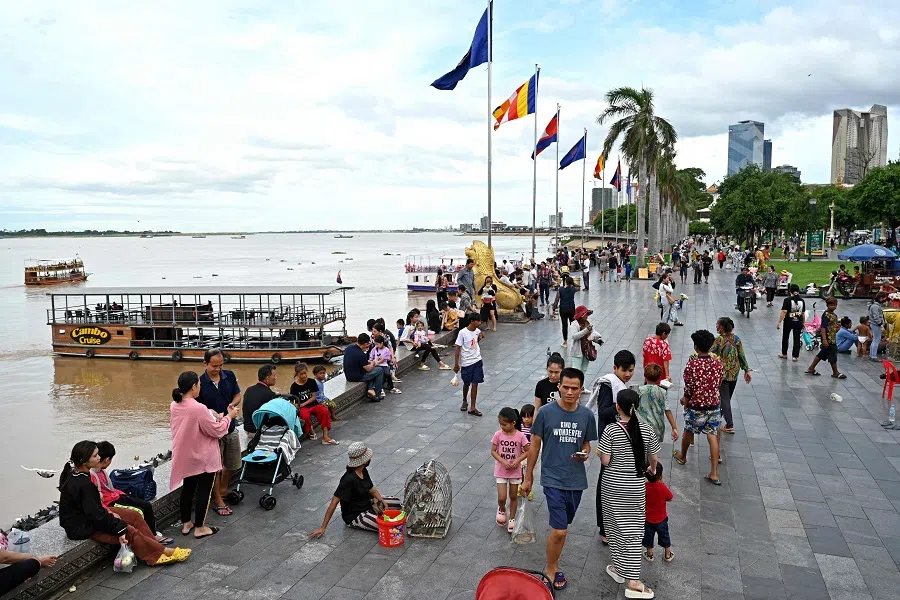
On the same day, Hun Manet met with the staff director of the US Senate Appropriations Committee State, Alex Carnes. In Cambodia's readout, Hun Manet expressed appreciation to the US for helping Cambodia's garment sector by enabling Cambodia to export garment products to the US via its Generalised System of Preference (GSP), and he also thanked the US for supporting Cambodia's democracy, human resource development, demining and assisting Cambodia during the Covid-19 pandemic. Hun Manet understands that getting support from the US and Western countries is significant for his leadership.
Speaking to the garment factory workers in Phnom Penh on 29 August, he told the audience that Alex Carnes and the US ambassador requested to meet him and the new cabinet of his government, implying that the new Cambodian government is recognised by the US. The tone of his speech gives hope that there will be a future positive relationship between Cambodia and the US.
His recent engagement with the US and Western countries, recalled his statement in April 2023, saying that Cambodia experienced a bitter history in the 1970s when the country had chosen one bloc over the others.
Leveraging ASEAN platform
As Cambodia is trying to diversify its relations, ASEAN could be a platform for Cambodia to reduce its dependence on great power. A few days after Hun Manet took office, Cambodian government news agency Agence Kampuchea Presse (AKP) released a report saying that ASEAN will be the top priority of Cambodia's foreign policy. Manet's visit to participate in the 43rd ASEAN summit in Jakarta has proven that the statement is more than symbolism.
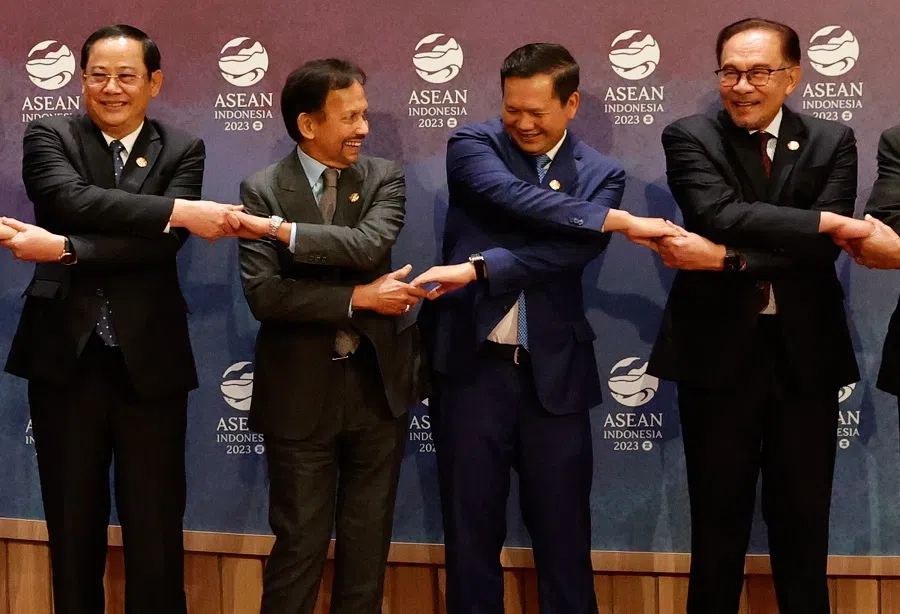
Speaking at the ASEAN Business and Investment Summit in 4 September, while acknowledging the hazardous environment resulting from great power rivalry, Manet reiterated the significance of economic integration among ASEAN countries and urged ASEAN to effectively utilise the benefits from the Regional Comprehensive Economic Partnership (RCEP) agreement and ASEAN Free Trade Agreements. Prioritising ASEAN could mean that Cambodia will show a more ambiguous stance when there is an issue between ASEAN countries and China particularly on the South China Sea issue.
However, strengthening the country's bureaucratic system will risk compromising the CPP's political dominance over the kingdom in the near future as the CPP relies strongly on the patron-client system.
Moving away from over-reliance on China?
Gauging Cambodia's foreign policy direction based on the new Cabinet members of the government as well as Hun Manet's recent engagement with external actors, Cambodia may not want to continue to over-rely on China. Hun Manet has frequently reiterated the need to improve the people's living standards as well as strengthen the country's bureaucratic system. This will open a new chapter for Cambodia's relations with the US and Western countries, which often assist Cambodia with socio-economic development and human resources.
Hun Manet has the strength to do so without risking political instability as his father remains the president of CPP and still commands the loyalty of many senior CPP members. However, strengthening the country's bureaucratic system will risk compromising the CPP's political dominance over the kingdom in the near future as the CPP relies strongly on the patron-client system. This can be exemplified by the "generational" transfer of power from the senior to young members of CPP (father to son). As predicting the future is a risky business, only time can truly tell what Cambodia's foreign policy will look like.
Related: What is China's role in Cambodia's upcoming election? | Easy highway, troubled city: How China wins and loses Cambodians' hearts | China: Needed but not well-loved in Cambodia | SEA's great power 'neutrality' risks being pro-China and anti-US | Why Cambodia is leaning towards China and not the US
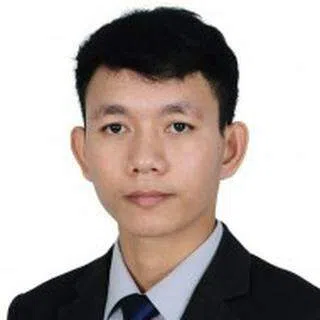
![[Big read] Paying for pleasure: Chinese women indulge in handsome male hosts](https://cassette.sphdigital.com.sg/image/thinkchina/c2cf352c4d2ed7e9531e3525a2bd965a52dc4e85ccc026bc16515baab02389ab)



